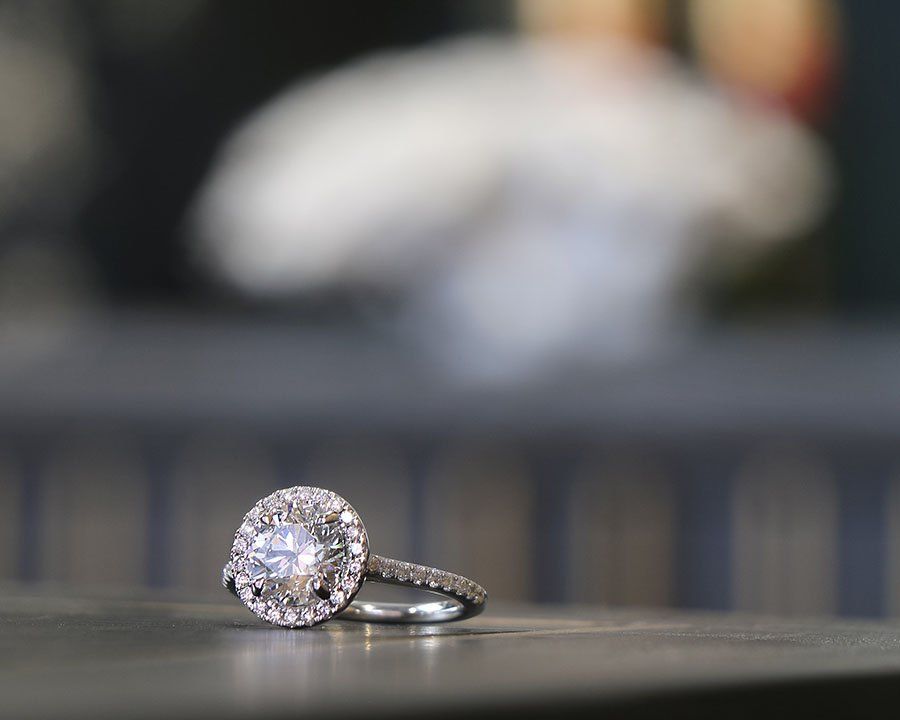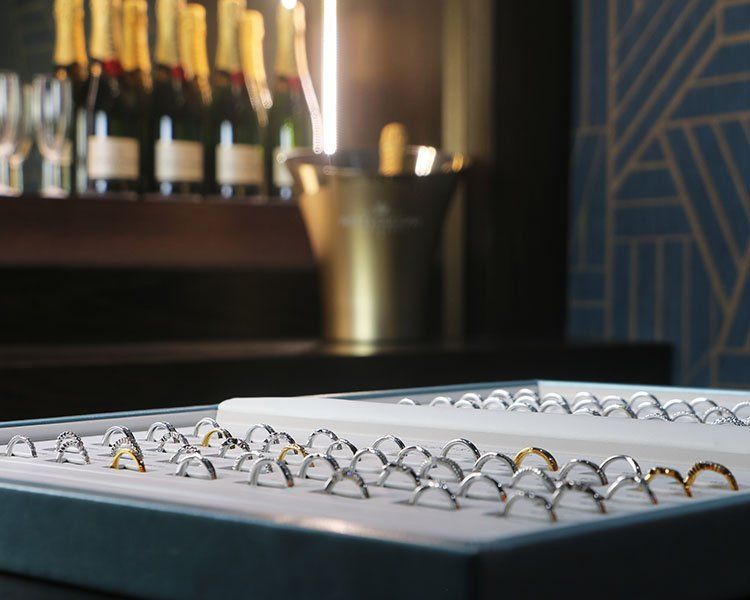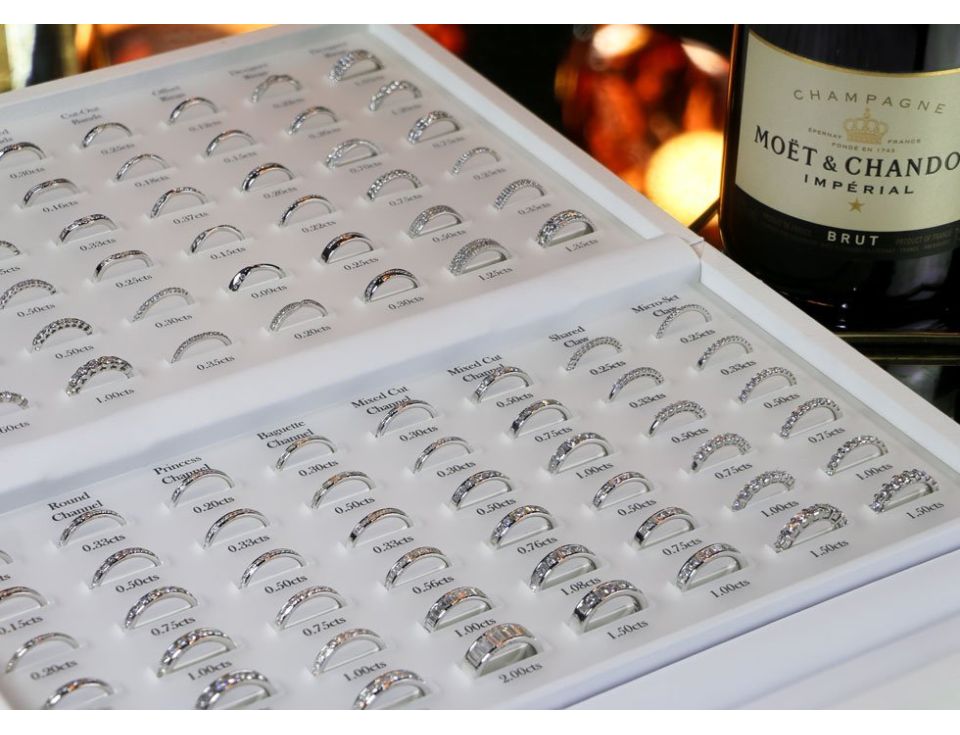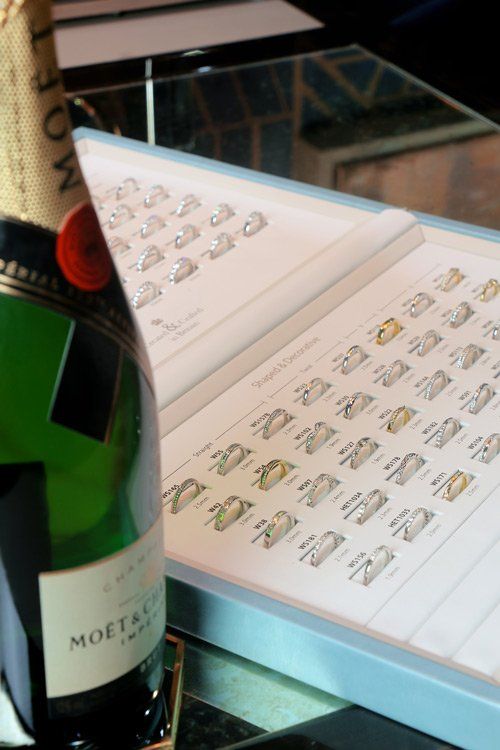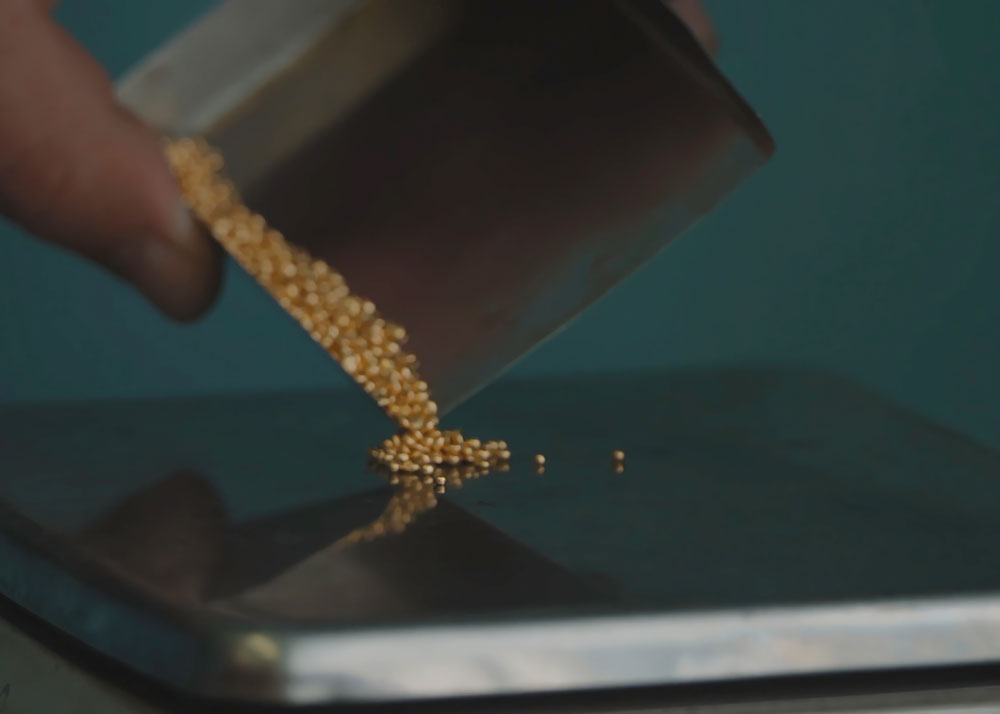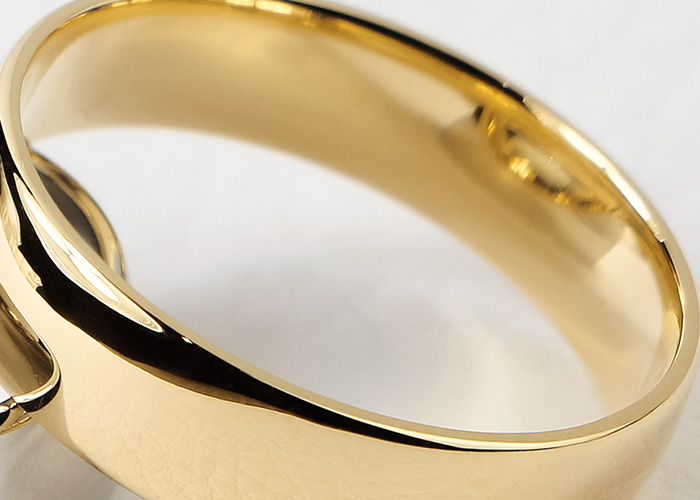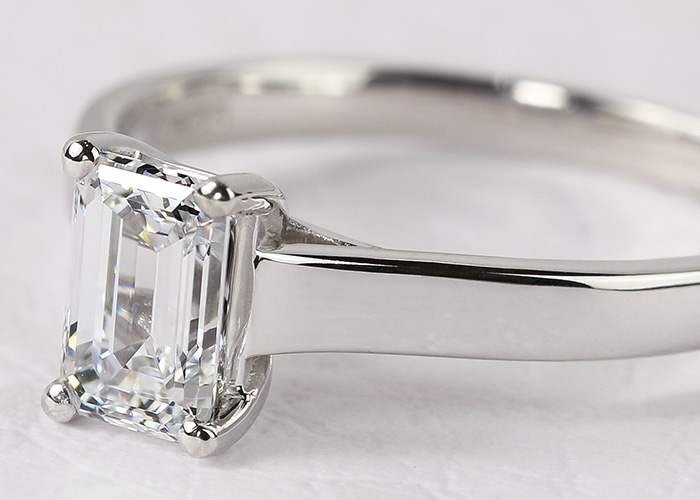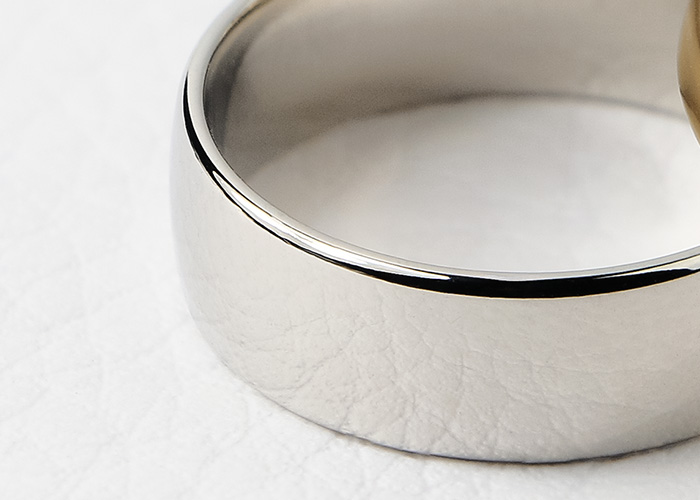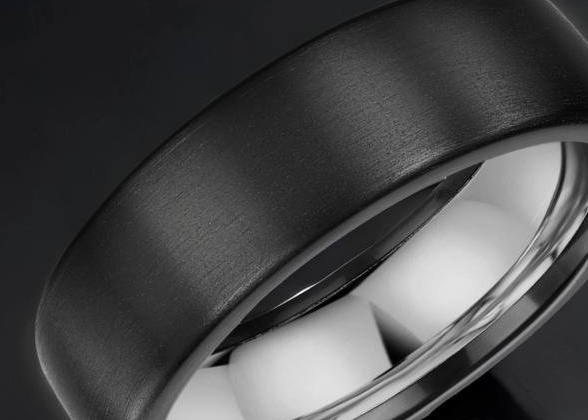18ct rose gold
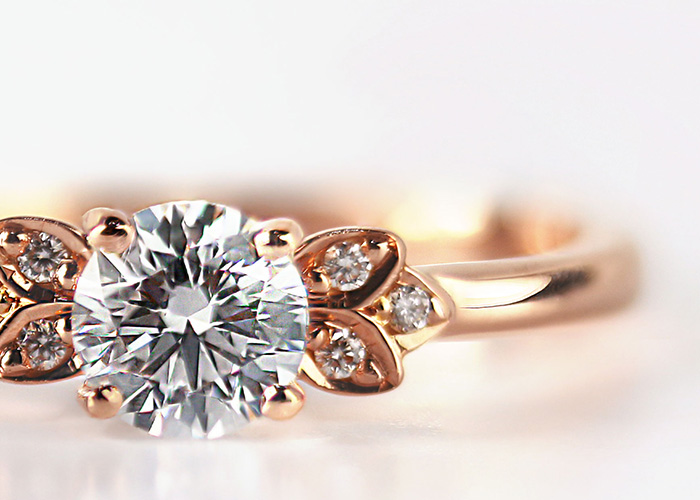
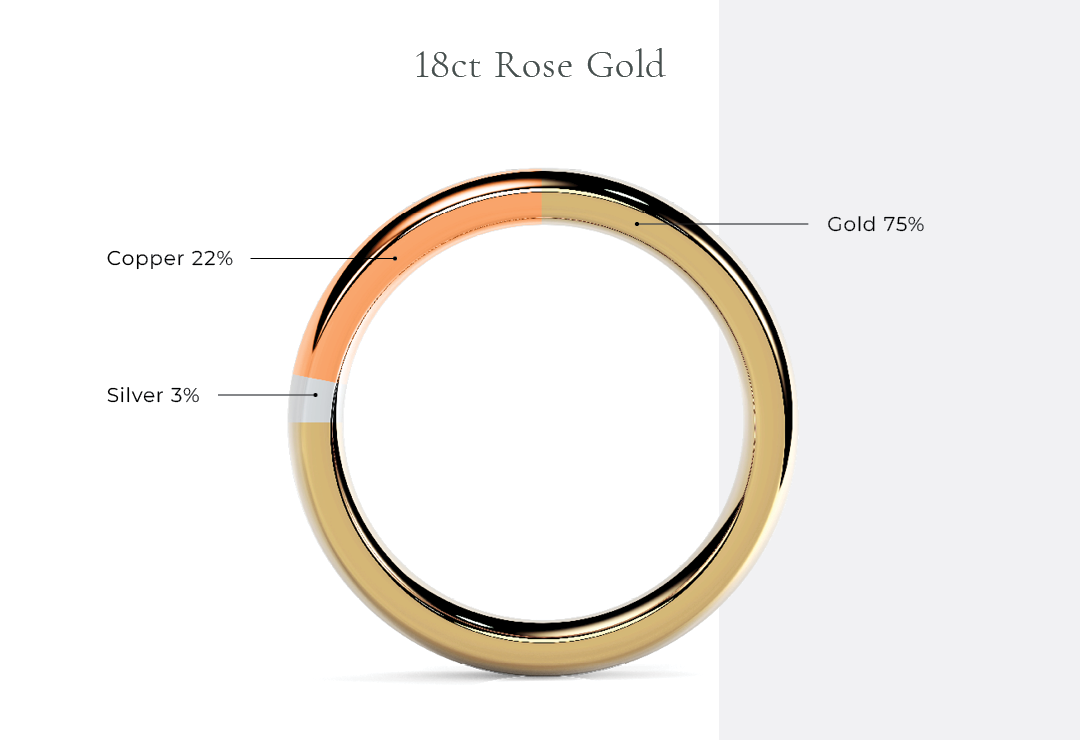
Alloying Rose Gold
How much does a rose gold ring cost?
Is rose gold real gold?
Why choose a rose gold ring?
| Pros | Cons | |
| Contemporary and distinct style | The style is divisive, it's either loved or disliked | |
| A unique choice that signals individuality | Colourless diamonds can pick up a slight pinkish hue | |
| It is durable and low maintenance. It doesn't tarnish or need to be re-plated. |
What’s the difference between 24K, 18K and 9K gold?
24ct Gold offers the highest purity but is softer and less durable, while 18ct gold is alloyed to strike a balance between purity, beauty, and strength, making it more suitable for wearable jewellery and being able to dictate its colour/hue to a degree.
Does 18ct rose gold scratch?
Yes, 18ct rose gold can scratch and scuff, although it’s slightly harder than yellow gold due to its higher copper content. 18ct rose gold typically ranks around 2.75-3 on the Mohs scale of hardness, making it a bit more scratch-resistant than 18ct yellow gold. The alloy for 18ct rose gold combines 75% pure gold with 22% copper, giving it its distinctive warm, pink hue and a slightly increased durability.
Here’s what to expect with 18ct rose gold:
- Scratch Resistance: While rose gold is harder than yellow gold, 18ct rose gold is still susceptible to scratches from daily wear. Over time, you may notice light scratches, which can develop into a soft patina, adding character to the ring. This gradual aging effect can enhance rose gold’s romantic aesthetic, but if you prefer a polished look, occasional maintenance can help preserve it.
- Patina and Polishing: With regular wear, 18ct rose gold develops a subtle patina that softens its colour, giving it a vintage appeal. Polishing can restore its original shine, but keep in mind that over-polishing can remove small amounts of gold. A jeweller can buff out scratches, which can be done every few years if a polished look is preferred.
- Durability and Longevity: 18ct rose gold is durable and holds its shape well, making it suitable for both classic and intricate designs. Its increased hardness over yellow gold makes it a good choice if you want a metal with a bit more resistance to wear, especially if you lead an active lifestyle. Still, it’s a good idea to remove the ring during heavy work or high-impact activities to minimise scratching.
In short, 18ct rose gold strikes a balance between durability and beauty, with a lovely warm tone that develops character over time. With periodic polishing or an appreciation for its natural patina, an 18ct rose gold ring can maintain its unique charm and beauty for many years.
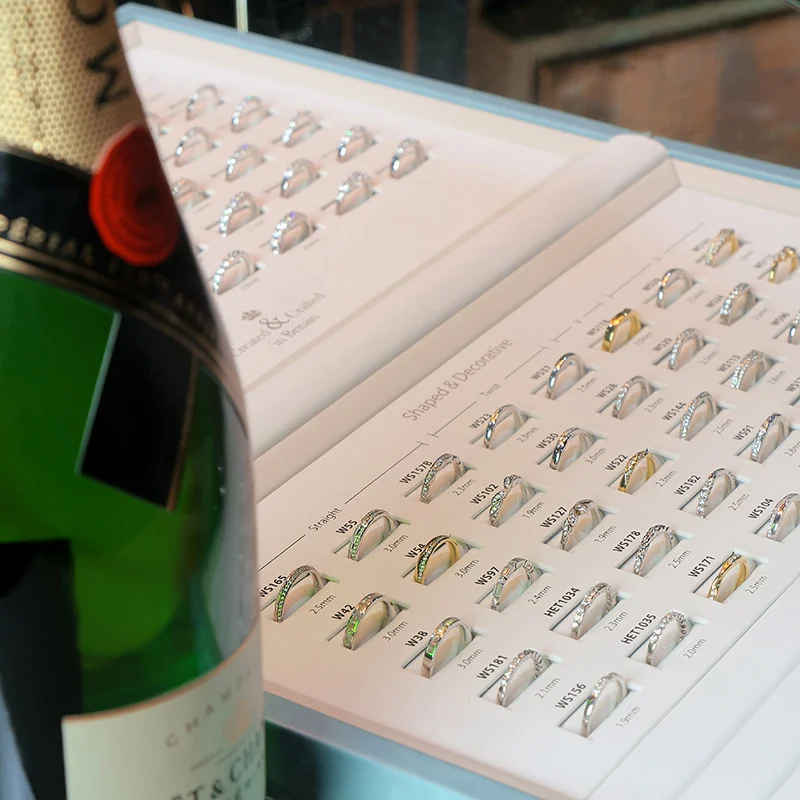
Book a consultation
Please select a location you'd like to make an appointment.














